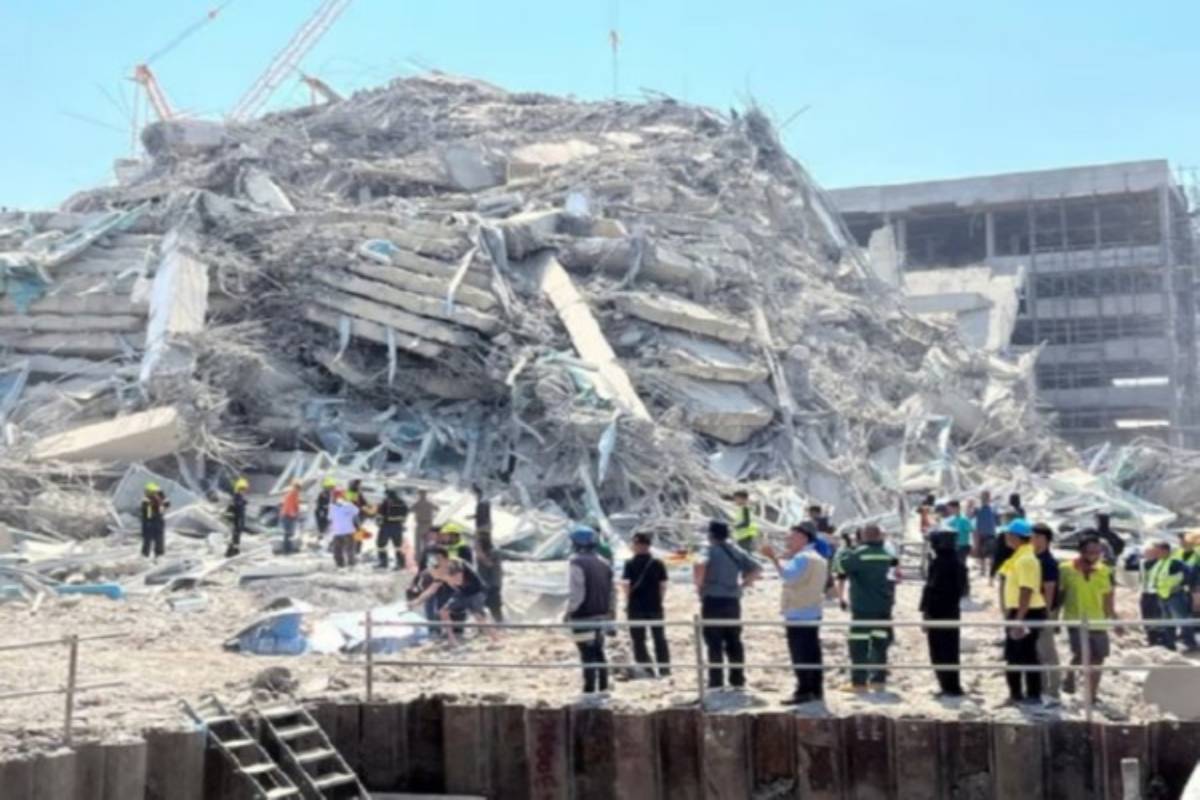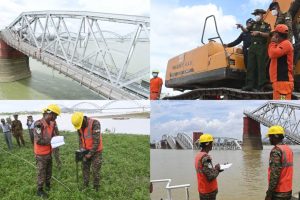Myanmar is reeling from the devastation of a massive 7.7-magnitude earthquake that has claimed at least 1,700 lives and left thousands more injured or missing. Rescue teams are working tirelessly to find survivors trapped beneath rubble as widespread destruction grips the country, CNN reported.
According to Myanmar’s military government, the earthquake has injured approximately 3,400 people, while nearly 300 remain missing. The United States Geological Survey (USGS) has warned that the final death toll could surpass 10,000, based on early estimates.
The powerful quake struck the central Sagaing region, near the historic city of Mandalay, home to over 1.5 million people. The impact was catastrophic, reducing buildings, bridges, and ancient temples to rubble. The tremors were felt as far as Bangkok and several Chinese provinces.
In Thailand’s capital, Bangkok, the earthquake caused further devastation. A high-rise building under construction collapsed within minutes, killing at least 18 people and trapping dozens more. Authorities reported seven additional fatalities elsewhere in the city, with ongoing search operations to locate around 80 missing individuals. Families of the missing have gathered at the disaster site, anxiously awaiting updates.
The quake—the most powerful to hit Myanmar in over a century—was followed by a series of aftershocks, including a significant 6.7-magnitude tremor over the weekend. The continued seismic activity has complicated rescue efforts, especially in remote areas cut off by infrastructure damage, such as the collapse of a major bridge over the Irrawaddy River.
With many still unaccounted for, experts warn that the full scale of the disaster may take weeks to emerge. In a rare move, Myanmar’s military junta has issued an international plea for assistance, prompting foreign aid and international rescue teams to begin arriving in the country.
The earthquake is the deadliest natural disaster to strike Myanmar in recent years, compounding the suffering of a nation already grappling with a civil war that has severely damaged communication networks, health services, and basic infrastructure.
Marie Manrique, Myanmar program coordinator for the International Federation of Red Cross and Red Crescent Societies (IFRC), described the scale of destruction as unprecedented in over a century in Asia. “The impact of the earthquake will be felt for weeks to come,” she told CNN, warning that the toll is expected to rise as rescue operations continue.





